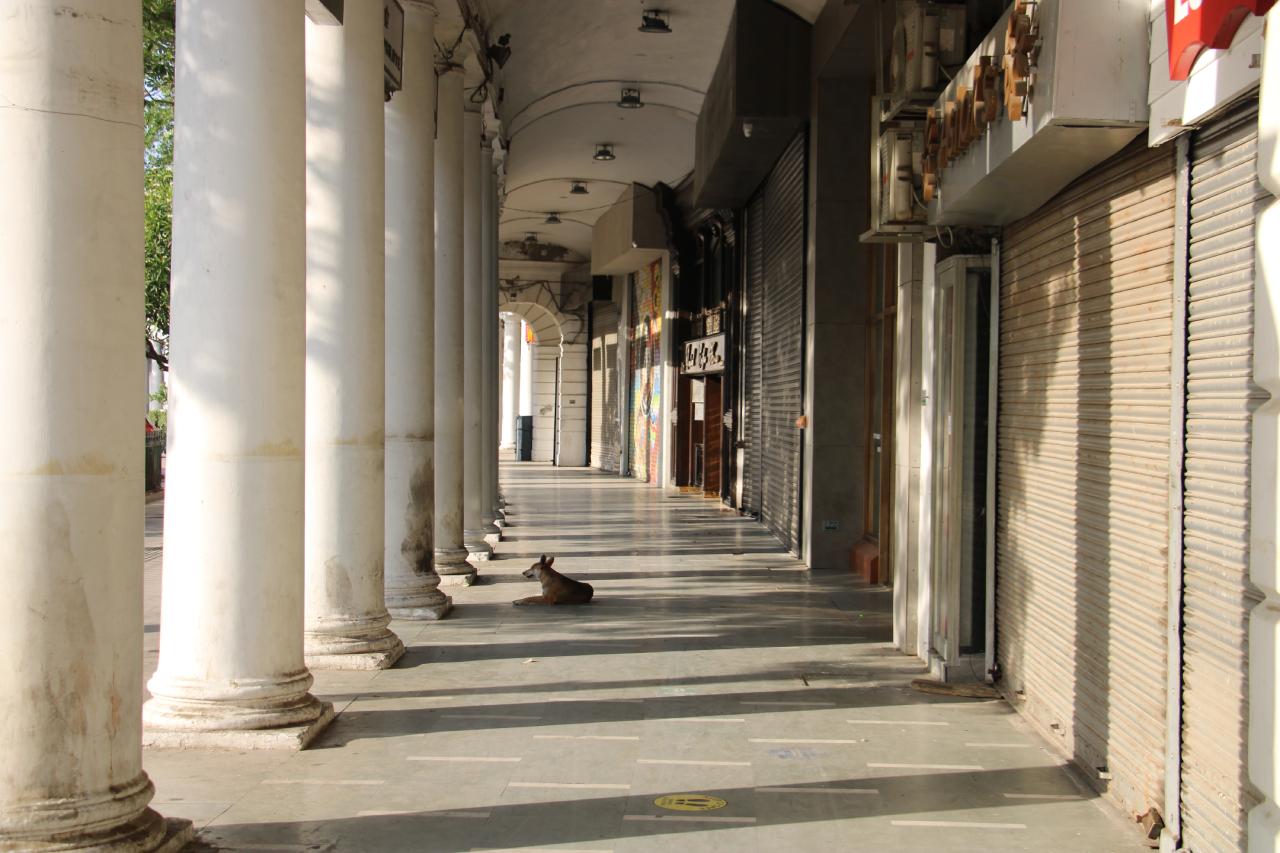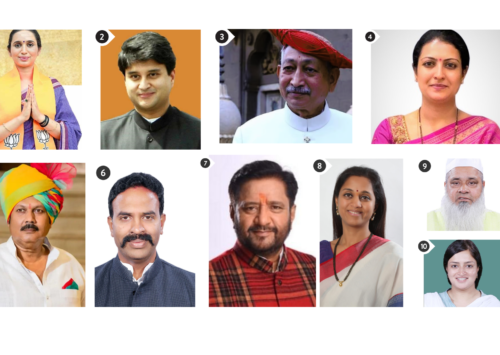Extended Covid-19 restrictions may lockdown small businesses for good

"For Delhi, the daily business loss due to lockdown is likely to be around INR 6 billion," Praveen Khandelwal, Confederation of All India Traders said in April 2021 (MIG Photos/ Varsha Singh)
Deepak Chandna has been running his cloth and apparel store in New Delhi for over 30 years. His shop is not only the sole source of income for his household but also fuels the stove of the two workers he has employed.
Since the onset of the pandemic and the following lockdowns hundreds of retailers dealing in the ‘non-essential’ items like Chandna have suffered catastrophic losses.
“Before pandemic we were able to earn INR 7000-8000 on a daily basis but after the pandemic we are working on alternate days and on an average we are earning INR 2000-3000 only which is a huge loss for us. I cannot reduce the salaries of the labour and sometimes I have to pay them from my own pocket. All the expenses like the taxes or electricity bills have not reduced but our income has,” Chandna, owner of ‘Deepak Wool store and Readymade Garments’, North Delhi, tells Media India Group.
Chandna’s is but one store in several million across India that face the same fate. Series of lockdowns and the numerous restrictions across several states and metros are likely to cost small retailers around 40 pc of their monthly earnings, says Federation of Retailer Association of India (FRAI), a representative body for around 40 million micro, small, and medium retailers in India in a report released in April 2021.
“Many small business owners are not even able to reopen their shops once the restrictions are lifted because the losses incurred by them during the second wave and the second lockdown were unbearable and huge,” Rishabh Dhawan, owner of Glasstech Facade Systems, a small company dealing in glass and building facades tells Media India Group.
Lockdown after lockdown
Post the first lockdown in 2020, several retailers and businessmen incurred huge losses but the worst hit were the stores that deal in so-called non-essential services, as they were not allowed to open at all.
“For Delhi, the daily business loss due to lockdown is likely to be around INR six billion while for overall India, the daily loss could be around INR 300 billion taking into account full lockdown, partial lockdown, night curfews and other forms of restrictions,” Praveen Khandelwal, Secretary-General, Confederation of All India Traders, had said in April 2021.
When the lockdown was lifted towards the end last year, these businessmen and entrepreneurs started to crawl their way back towards revival. However, with the onset of the second wave, another lockdown pushed them back into the never ending rabbit hole of losses.
“Luckily after the first lockdown, a few of our projects started and the losses were managed, but the second one has terribly affected our work and income. Our payments were delayed. We could not find workers,” says Dhawan.
No support from government
Like many other sectors of the economy, these businesses, too, complain of lack of any support from the government to recover from the disastrous economic meltdown. As a result, this sector has been struggling to get on its feet since the first lockdown without any support. They say that policy makers seem ignorant of the problems faced by retailers and businessmen dealing in non-essential services.
“We have not received any help from the government and unlike government employees and others who get pensions; we don’t have any assured income source. A business man earns only as long as he working, when our shops were shut down our only source of income disappeared,” says Chandna.
A survey conducted by Dun & Bradstreet, a provider of commercial data, analytics, and insights for businesses said the small business owners needed three support measures from the government to revive their businesses post the pandemic. These include better credit facility, better marketing support and adoption of technology.
“I was expecting that the government would waive off the interest payments at least for the duration of the lockdown but that did not happen. I was also hoping to get some sort of help with loan payments and GST payments which again did not happen. The government could have planned it in a better way, some incentives and relaxations could have been given to us to help revive our business. Some sort of olive branch could have been extended,” adds Dhawan.
Uncertain future
While still struggling to recover from the insurmountable challenges they faced during the first two waves, small business owners are still uncertain about their future, amidst reports of a likely third wave of the deadly pandemic and more lockdowns.
“We have started preparing for another lockdown. Even though I hope such a situation will not arise again but we need some measures in place in order to ensure the losses will not be as catastrophic as during the previous lockdowns,” says Dhawan.









